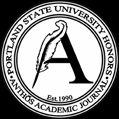Abstract
In this essay, I will analyze the Visigothic law code, the Forum judicum, as revised by King Recces winth in 654 CE and King Erwig in 681 CE, in order to examine Visigothic society as envisioned by its lawmakers. In particular, I will focus on the role of Jews in this social framework. While these laws were, of course, normative and not necessarily reflective of any historical reality outside the imaginations of their authors, they can be used to attempt to determine the intent of the Visigothic rulers towards the Jews in their kingdom. To this end, I will provide a brief overview of the treatment of the Jews under Visigothic law before examining scholarship on the language and intent of the church councils leading up to the promulgation of anti- Jewish legislation, particularly those under the presidency of Isidore of Seville. I will then examine the Liber judicum to ascertain its vision of the Jews in society. I will argue that the Visigothic kings and the bishops of seventh-century Iberia were attempting to engineer an ideal social space in which the interests of church, state, and society were unified, and thus, every social interaction was defined in respect to all three. Pagans, heterodox Christians, and especially Jews could not participate in the religious dimension of this sphere, and thus they had to be excluded from other forms of civic and social participation.
DOI
10.15760/anthos.2013.81
Creative Commons License

This work is licensed under a Creative Commons Attribution-NonCommercial-Share Alike 4.0 International License.
Persistent Identifier
http://archives.pdx.edu/ds/psu/12589
Recommended Citation
Phillips, Jonathan
(2013)
""The Perfidy of the Jews": Visigothic Law and the Catholic Public Sphere,"
Anthós:
Vol. 5:
Iss.
1, Article 8.
https://doi.org/10.15760/anthos.2013.81
